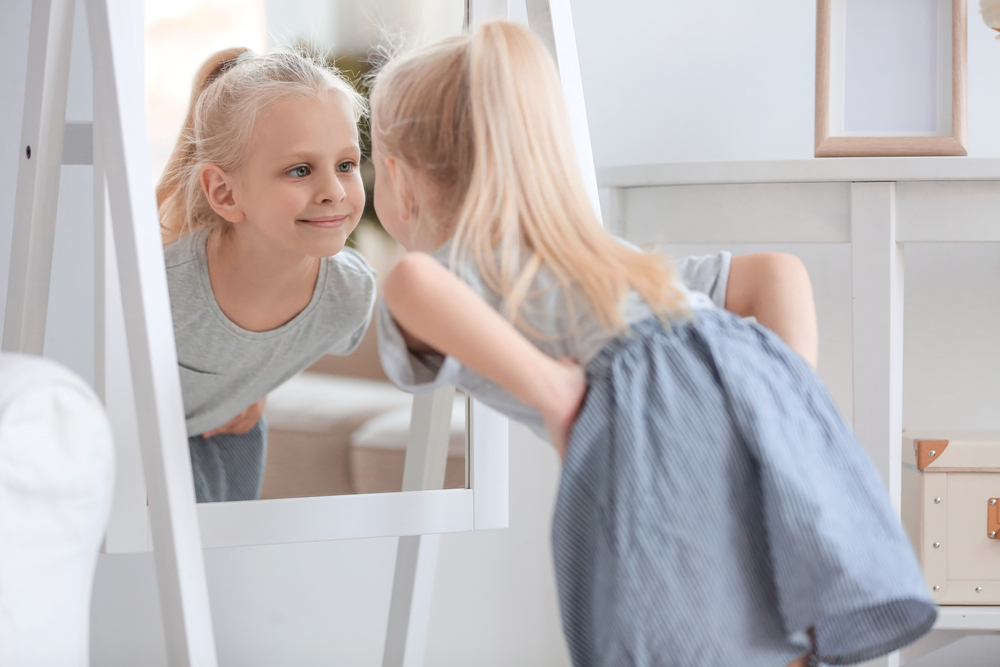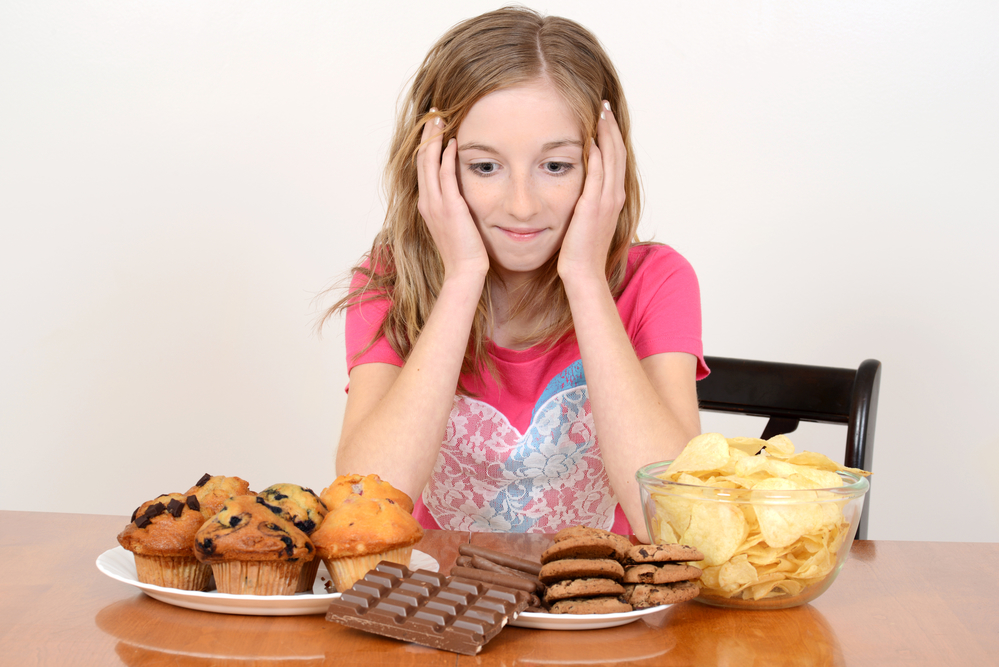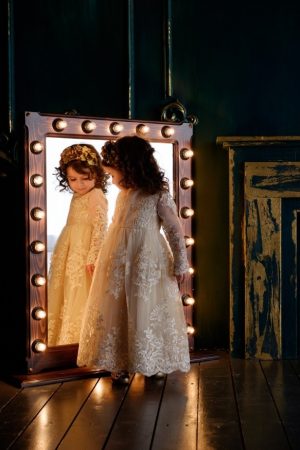 As parents, we play the most critical role in helping our children develop a positive body image and sense of self-worth.
As parents, we play the most critical role in helping our children develop a positive body image and sense of self-worth.
Children’s opinions of their bodies form at a very young age, and whilst it is difficult for older children, teens and adults to escape the ‘ideal’ body image that is promoted via the popular media, research suggests that children as young as 3 years old can already have body image issues.
No matter how much we try to protect our children from unrealistic social messages, it’s likely that the messages that influence the way a child feels about their own body, have already been embedded… often through our own language and behaviour.
Even body language and other subtle non-verbal cures can have a significant impact on our children. Something as small as frowning in the mirror, or releasing a sigh of disappointment when we’re trying on clothes or standing on the scales, can send a very powerful message…. it reinforces the message that the body needs to be better…. that it needs to be ‘perfect’, just like the ones depicted in the popular media. It also establishes a limiting paradigm:
- I can’t be happy if my body isn’t ‘perfect’;
- ‘Perfection’ is defined by a number on the scales or a size on a tag;
- A ‘perfect body’ will allow me to be accepted & loved;
- I need to do whatever it takes to get the ‘perfect body’.
The problem is, the ‘perfect body’ doesn’t really exist… certainly not in the way it’s depicted in the popular media. Images are often edited to make models appear thinner or to enhance their features.… and this creates an unattainable ‘goal’ that can only lead to disappointment and ultimately, a diminished sense of self-worth, which can affect all other aspects of life.
The reality is though, each and every body was already born ‘perfect’.… the way that it was meant to be…. and we can choose to provide it with the level of care and maintenance that it requires and deserves, or elsewise, we effectively choose the opposite by default.
Empowering our children from an early age to know the value of their (already perfect) body, and equipping them with the skills to care for their ‘physical self’, goes a long way towards developing their sense of confidence, self-love and true worth…. especially when we embody those same values and behaviours, as parents.
In stark contrast however, children who lack the sense of power (knowledge, skills and positive role models), are more likely to succumb to the unrealistic ‘ideals’ portrayed in the popular media, and as a result, develop an adversarial relationship with their body and obsess about calories, food and their weight. With this, comes a higher level of self-consciousness, anxiety and isolation.
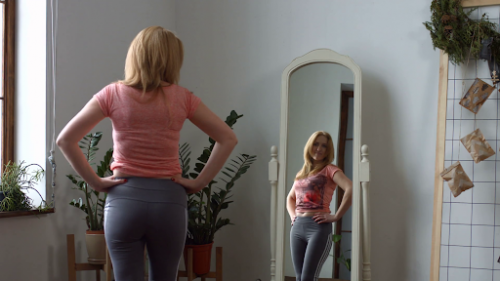
There are some really simple steps we can all take, to help our kids walk a more positive path:
- Own the Origin: Take some time out to think about the messages we may be (inadvertently) sending to our kids about our own body image. Talking about the size of our thighs, our latest diet or our punishing workouts can only create a negative story in the minds of our kids, who will then begin to worry about the size of their own thighs, start to think that they should also be dieting, or assume that all exercise is gruelling.
- Honour Good Health (not weight): A healthy, well cared for body supports a superior quality of life. Balanced nutrition and fitness are important ‘process based’ goals that will ultimately create the outcome we desire, without any need to obsess about the numbers on the scale or the clothes tag! By highlighting all the benefits of a healthy body that moves with ease, and by giving our kids the knowledge and skills to make smarter food choices as well as ample opportunities for play and other fun physical activities, they will be more able to understand and confidently take responsibility for aspects of their own self-care.
- Find Their Drive: Feeling fit, strong and capable is an important element for a positive body image. For some kids, physical activity is as natural as breathing, but for others, it can be a challenge. Regardless though, all children need regular physical activity, so it’s important to find something that they enjoy and feel motivated to participate in. For some, it may be team sports…. for others, it may be a unique individual activity such as long distance running or hip hop dancing.
- Highlight the Hype: Support kids to become media savvy by talking about the images depicted across different platforms. Provide them with the understanding that many images are edited to make them appear a certain way, but that there is no such thing as ‘perfection’. Older children may also be able to grasp concepts associated with advertising and marketing, and can begin to recognise misleading ‘health claims’.
- Value Beyond Body: Weight-related teasing is traumatic for any child. Not only do we need to prevent our kids from falling victim to it (by discreetly keeping their body composition within healthy limits through nutrition and physical activity), but we also need to reinforce that a person’s true value in this world comes from within… not from their external appearance. Encourage them to identify their own unique and valuable qualities, as well as the unique and valuable qualities in others.
These simple steps will not only create an important foundation for a positive body image, but also support a framework for the creation of a healthy, active and positive life, well into the future.
Enjoy!
__________
Written by: Cherie Rivas
Women’s Health & Wellness Mentor & Coach
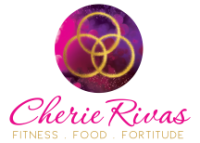
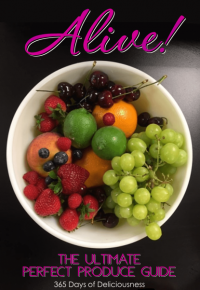
Feel ALIVE! energized and capable of performing at your peak, by nourishing your body with real, fresh, living foods…. just the way that nature intended!
ALIVE! is the Ultimate Perfect Produce Guide…. listing what’s in season (in a month-by-month format), as well as loads of great information and feature recipes.
Get your FREE COPY here:
C.
xx
You may also like to read:


